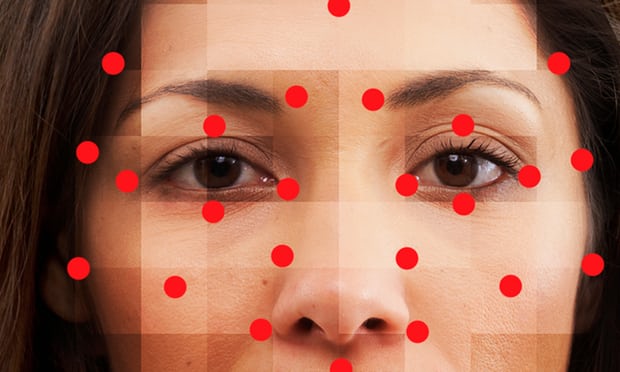Facial matching system risks racial bias, Human Rights Law Centre warns
The warning is contained in a submission to a parliamentary committee inquiry examining the Coalition’s proposal for the home affairs department to collect, use and disclose facial identification information.
The facial matching system was agreed to in principle by states in October, but has since led to overreach warnings from Victoria and the Law Council of Australia.
Concerned parties have warned the Coalition’s identity matching services bill allows access to facial verification data by the private sector and local governments, and that it could be used to prosecute low-level crimes.
 |
| Ethnic minorities could be ‘disproportionally’ targeted by the government’s facial matching system. Photograph: John Lund/Getty Images/Blend Images |
In a submission to the parliamentary joint committee on intelligence and security, lodged on Tuesday, the Human Rights Law Centre warned the bill was “manifestly and dangerously insufficient” and the system was “high risk” because the bill failed to adequately identify or regulate the uses of facial matching technology.
The centre submitted that both false positive and false negative results for facial recognition “are likely to arise disproportionately in relation to people who belong to ethnic minorities in Australia”.
It cited studies that found facial recognition had “a bias towards the dominant ethnic group in the area in which it is developed”.
The HRLC noted the NEC Neoface technology, used by federal agencies and several Australian states, had been validated as the best in the industry by the US National Institute of Standards and Technology.
But the centre warned the technology “has not been tested for accuracy based on demographics”, and therefore overall accuracy rates may obscure disproportionately high rates of misidentification of ethnic minorities.
The centre warned that false positives could subject suspects to investigation, surveillance and denial of employment, and misidentification would erode trust in law enforcement and security agencies. It recommended annual accuracy testing, including demographic tests.
The use of facial recognition technologies also posed “a significant threat to freedoms of expression, association and assembly”, the submission said.
It said facial recognition “risks transforming the public space into a sphere where each person can be monitored and identified”, which is “particularly concerning in the context of civic gatherings, demonstrations and protests”.
The HRLC said the use of facial recognition could discourage people from exercising their right to assembly, because even citizens who had done nothing wrong might not want police to know they had attended politically sensitive gatherings such as protests against police violence or Aboriginal deaths in custody.
It said “politically motivated surveillance” might not be a “likely near-term consequence” of the bill, but it “must be guarded against in the design of this system”. It said the bill should not pass without safeguards to protect freedom of expression.

